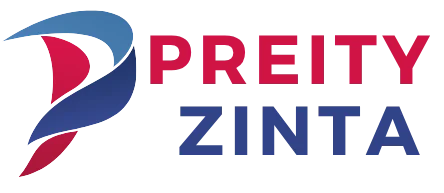Table of Contents
ToggleMastering a new language can feel like trying to juggle flaming swords while riding a unicycle. It’s challenging but oh-so-rewarding! Whether it’s for travel, work, or impressing friends at parties, fluency opens doors and sparks connections. Yet, many find themselves stuck in the endless loop of grammar rules and vocabulary lists.
Understanding Language Fluency
Language fluency involves the ability to communicate effectively and effortlessly in a language. It encompasses not only vocabulary and grammar, but also pronunciation and comprehension.
Definition of Language Fluency
Language fluency refers to the ease and proficiency with which individuals can express thoughts and understand others in a language. Achieving fluency entails mastering not just words and phrases but also cultural nuances and idiomatic expressions. Fluency indicates the ability to engage in conversations naturally and respond appropriately without excessive hesitation or errors.
Importance of Language Fluency
Fluency plays a crucial role in enhancing personal and professional opportunities. Individuals with strong language skills often experience improved interactions in social settings, which fosters connections and relationships. Furthermore, fluency positively impacts career advancements. Many employers value bilingual or multilingual candidates as these skills can open doors to international markets and diverse clientele. Mastery of a language enriches travel experiences, allowing deeper engagement with local cultures and communities.
Tips for Enhancing Fluency
Improving language fluency involves strategic practices and consistent effort. Implementing focused habits can greatly facilitate this journey.
Practice Speaking Regularly
Engaging in conversations with native speakers enhances fluency. Consider joining language exchange groups or online platforms where individuals can practice speaking. Regular practice increases confidence in speaking and listening skills. Consistent dialogue helps solidify vocabulary and grammar knowledge. Role-playing different scenarios can also boost conversational skills. Prioritizing speaking time daily contributes to fluency progression. Many language learners find that even short, daily conversations make a significant difference over time.
Incorporate Reading and Writing
Reading materials in the target language exposes learners to diverse vocabulary and grammatical structures. Choosing varied genres, such as fiction, articles, or blogs, enriches language exposure. Writing regularly, whether through journaling or composing essays, reinforces language learning. Seeking feedback on written work aids in correcting mistakes. Using tools, like language apps or writing communities, fosters improvement. Prioritization of reading and writing practice increases literacy skills and deepens understanding. Both activities serve as complementary strategies for enhancing overall fluency and comprehension.
Techniques for Overcoming Barriers
Overcoming barriers to language fluency involves addressing common challenges faced by learners. Addressing anxiety and building confidence plays a crucial role in this journey.
Dealing with Anxiety
Anxiety can hinder speaking and understanding skills. Recognizing triggers helps learners manage their fear of making mistakes. Slow exposure to speaking situations reduces stress over time. Practicing mindfulness techniques, such as deep breathing or visualization, often alleviates pressure before conversations. Creating a supportive environment with patient language partners encourages more relaxed interactions. Emphasizing progress rather than perfection fosters a positive mindset.
Strategies for Building Confidence
Confidence builds gradually through consistent practice. Engaging in regular conversations with fluent speakers reinforces language skills. Setting manageable goals, such as learning a set number of new words weekly, provides motivation. Participating in language meetups or online forums encourages interaction with fellow learners. Using language apps for daily practice helps maintain skills and track progress. Celebrating achievements, no matter how small, boosts morale. Seeking feedback from experienced speakers can provide constructive insights and reassurance. These strategies significantly foster a confident approach to language use.
Tools for Language Learning
Effective tools enhance language learning experiences. Many options cater to various preferences and learning styles.
Online Resources and Apps
Diverse online resources and apps simplify language learning. Several platforms offer interactive exercises and engaging content. Duolingo provides gamified lessons that make vocabulary and grammar practice enjoyable. Memrise emphasizes spaced repetition for long-term retention. Additionally, HelloTalk connects learners with native speakers for real-time practice. Websites like BBC Languages and FluentU deliver real-world content, enhancing comprehension. Users benefit from flexibility since these tools support study anywhere and anytime.
Interactive Language Courses
Interactive language courses create immersive learning opportunities. Platforms such as Rosetta Stone emphasize speaking and listening skills through immersive methods. Babbel focuses on conversational competence, catering to immediate communication needs. Interactive quizzes and video clips enhance lesson engagement. Course offerings frequently adapt to specific interests, fostering a personal connection to the language. Learning becomes enjoyable, with progress tracking building motivation. Popular options often include community forums, enabling interaction with fellow learners. This collaborative aspect enriches the overall language acquisition process.
Achieving language fluency is a journey filled with both challenges and rewards. By embracing practical tips and utilizing effective tools, learners can navigate this path with greater ease. Regular practice with native speakers and engaging in immersive experiences are key to building confidence and solidifying skills.
Overcoming anxiety and celebrating small milestones can significantly enhance the learning process. With the right mindset and resources, anyone can unlock the benefits of fluency, from enriching travel experiences to expanding career opportunities. The commitment to mastering a new language not only opens doors but also fosters a deeper connection with diverse cultures and communities.







